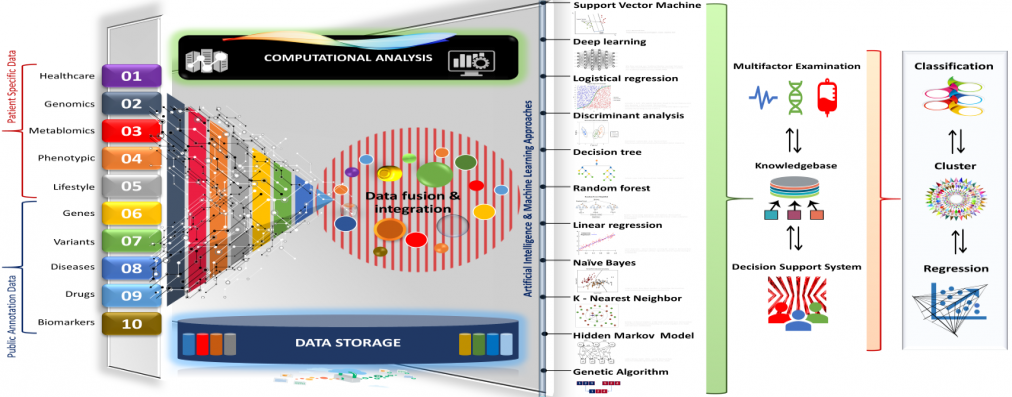News
Practicing Precision Medicine with Intelligently Integrative Clinical and Multi-OMICS Data Analysis
Aug 03, 2021
Precision medicine aims to empower clinicians to predict the most appropriate course of action for patients with complex diseases like cancer, diabetes, cardiomyopathy, and COVID-19. With a progressive interpretation of the clinical, molecular, and genomic factors at play in diseases, more effective and personalized medical treatments are anticipated for many disorders. Understanding patient’s metabolomics and genetic make-up in conjunction with clinical data will significantly lead to determining predisposition, diagnostic, prognostic, and predictive biomarkers and paths ultimately providing optimal and personalized care for diverse, and targeted chronic and acute diseases. In clinical settings, we need to timely model clinical and multi-omics data to find statistical patterns across millions of features to identify underlying biologic pathways, modifiable risk factors, and actionable information that support early detection and prevention of complex disorders, and development of new therapies for better patient care. It is important to calculate quantitative phenotype measurements, evaluate variants in unique genes and interpret using ACMG guidelines, find frequency of pathogenic and likely pathogenic variants without disease indicators, and observe autosomal recessive carriers with a phenotype manifestation in metabolome. Next, ensuring security to reconcile noise, we need to build and train machine-learning prognostic models to meaningfully process multisource heterogeneous data to identify high-risk rare variants and make medically relevant predictions. The goal, today, is to facilitate implementation of mainstream precision medicine to improve the traditional symptom-driven practice of medicine, and allow earlier interventions using predictive diagnostics and tailoring better-personalized treatments. We strongly recommend automated implementation of cutting-edge technologies, utilizing machine learning (ML) and artificial intelligence (AI) approaches for the multimodal data aggregation, multifactor examination, development of knowledgebase of clinical predictors for decision support, and best strategies for dealing with relevant ethical issues.
Publication:
Ahmed, Z. (2020). Practicing Precision Medicine with Intelligently Integrative Clinical and Multi-OMICS Data Analysis. Human Genomics (BMC, Springer Nature). 14, 35.
Selected, featured article of the month by the journal, October 2020.